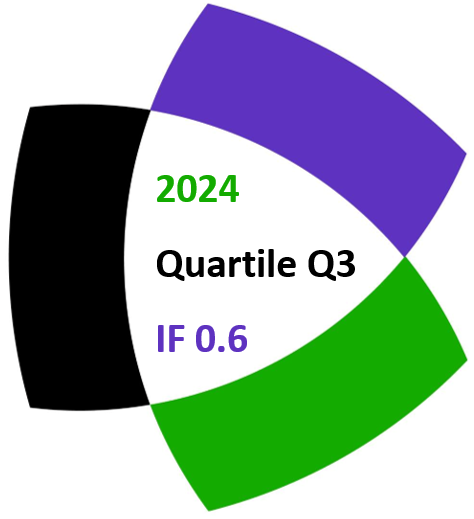Sumit Kumar Jha
Notes on Number Theory and Discrete Mathematics
Print ISSN 1310–5132, Online ISSN 2367–8275
Volume 27, 2021, Number 2, Pages 64–69
DOI: 10.7546/nntdm.2021.27.2.64-69
Full paper (PDF, 187 Kb)
Details
Authors and affiliations
Sumit Kumar Jha ![]()
International Institute of Information Technology
Hyderabad-500 032, India
Abstract
We derive a formula for the number of non-negative integer solutions of the equation ![]() in terms of the partial Bell polynomials via the Faa di Bruno’s formula.
in terms of the partial Bell polynomials via the Faa di Bruno’s formula.
Keywords
- Linear Diophantine equation
- Generating function
2020 Mathematics Subject Classification
- 11D45
- 05A15
References
- Komatsu, T. (2003). On the number of solutions of the Diophantine equation of Frobenius – General case. Mathematical Communications, 8, 195–206.
- Tripathi, A. (2000). The number of solutions to ax + by = n. The Fibonacci Quarterly, 38, 290–293.
- Binner, D. S. (2020). Number of non-negative integer solutions of the equation
ax + by + cz = n and its relation with quadratic residues. Journal of Integer Sequences, 23, Article 20.6.5. - Comtet, L. (1974). Advanced Combinatorics: The Art of Finite and Infinite Expansions, D. Reidel Publishing Co., Dordrecht.
- Charalambides, Ch. A. (2002). Enumerative Combinatorics, CRC Press.
- Eger, S. (2016). Identities for partial Bell polynomials derived from identities for weighted integer compositions. Aequationes mathematicae, 90, 299–306.
- SymPy: a Python library for symbolic mathematics. Tool available at https://docs.sympy.org/latest/modules/functions/combinatorial.html.
Related papers
Cite this paper
Jha, S. K. (2021). A formula for the number of non-negative integer solutions of a1x1 + a2x2 + ··· + amxm = n in terms of the partial Bell polynomials. Notes on Number Theory and Discrete Mathematics, 27(2), 64-69, DOI: 10.7546/nntdm.2021.27.2.64-69.


